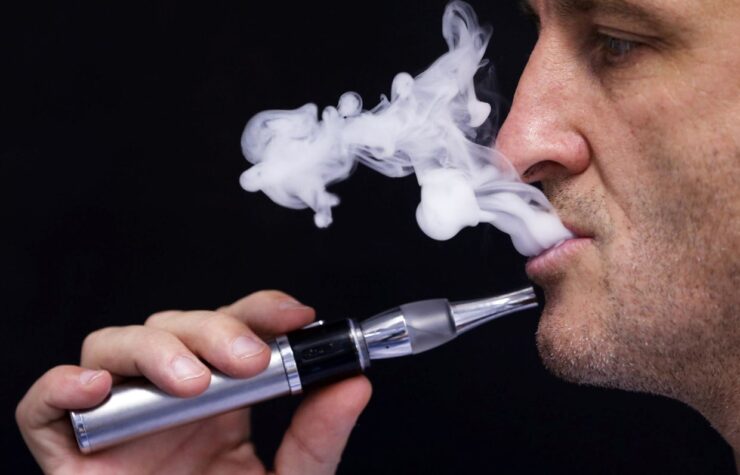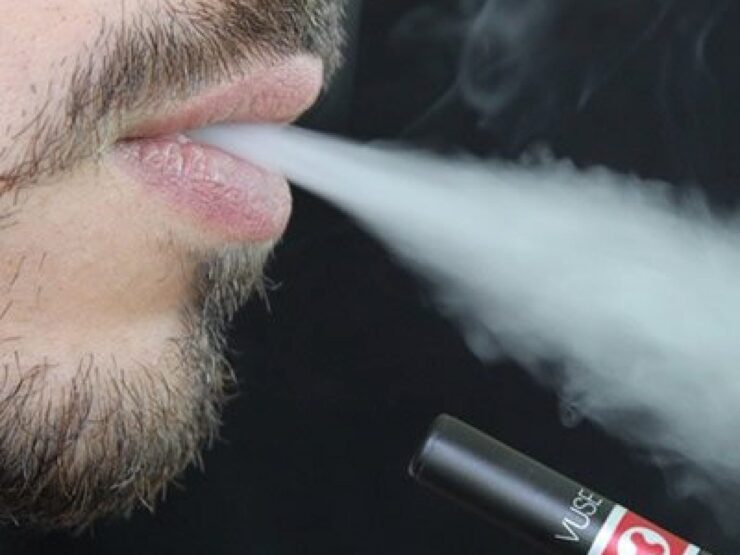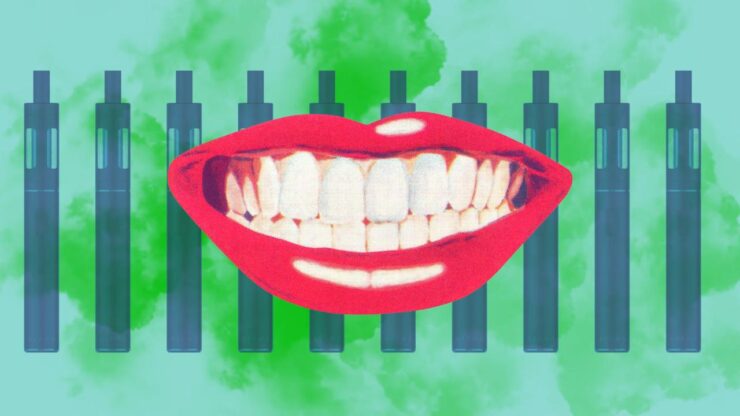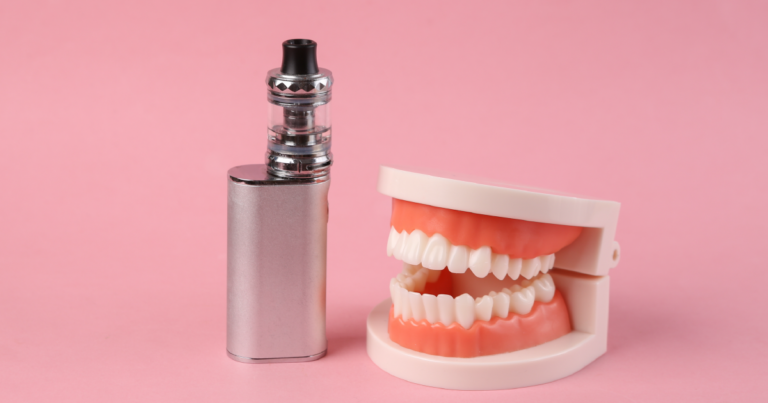Vaping is often marketed as a safer alternative to smoking traditional cigarettes. While it might eliminate some health risks linked to the combustion of tobacco, vaping is not without its drawbacks. One area of concern that often gets overlooked is the impact of vaping on oral health, particularly on your teeth. This article will explain how vaping affects your teeth by exploring the chemical components involved, comparing it with traditional smoking, and outlining some of the most common dental issues linked to vaping.
Chemicals in Vaping Products

The first thing you need to know is what you are actually inhaling when you vape. E-cigarettes use a liquid known as e-juice or vape juice. This liquid often contains nicotine, flavorings, and other chemicals that turn into vapor when heated. Some of the chemicals, like propylene glycol and vegetable glycerin, are generally recognized as safe for ingestion but have not been extensively studied for long-term inhalation. If you are looking for a high quality selection of vape juices be sure to check out Dvine Laboratories!
One chemical to be cautious about is nicotine. Nicotine reduces blood flow, which can lead to gum issues. A lower blood flow can affect your gums’ ability to fight bacteria, leading to infections and other problems. In addition, nicotine can cause your mouth to produce less saliva, which plays a critical role in cleaning your mouth.
Vaping vs Smoking
Many people switch to vaping to avoid the known health risks of smoking tobacco. Smoking is clearly harmful to your teeth, causing issues like staining, gum disease, tooth loss, and in extreme cases, cancer of the mouth. Vaping eliminates the smoke, tar, and most carcinogens found in traditional cigarettes. However, it still contains nicotine and other chemicals that can harm your teeth and gums. The absence of smoke may reduce some risks, but it does not make vaping completely safe for your oral health.
Staining
One of the most noticeable effects of smoking is the yellowing of teeth. Vaping seems to be less aggressive in this regard, but it is not entirely innocent. The nicotine in e-juices can still cause staining. Over time, the outer layer of your teeth may start to show signs of discoloration. This is particularly true for those who vape liquids with added colorings or flavorings.
Dry Mouth

Saliva helps to wash away food particles and bacteria, maintaining a healthy pH level in your mouth. Nicotine in vaping products can reduce saliva production, leading to a dry mouth. A dry mouth is not just uncomfortable; it’s also a breeding ground for bacteria. This can result in bad breath, tooth decay, and gum disease if not addressed.
Gum Disease
Your gums are vital to your oral health. Nicotine can cause your gums to recede or become inflamed. When this happens, pockets can form between the teeth and gums, allowing bacteria to build up. This is known as gum disease. In its early stage, it may just be gingivitis, which is reversible. But if left untreated, it can escalate into periodontitis, which can lead to tooth loss.
Tooth Sensitivity
Vaping can also lead to increased tooth sensitivity. This can make it painful to consume hot or cold foods and drinks. The reason behind this is the effect of nicotine and other chemicals on your gums. As your gums recede, the sensitive parts of your teeth get exposed, leading to discomfort and pain.
Prevention and Treatment

If you vape, there are some steps you can take to reduce the risk to your teeth. First, try to cut back on the amount of nicotine in your e-juices or consider nicotine-free options. Make sure you stay hydrated to combat dry mouth and maintain regular oral hygiene, including flossing and using an antiseptic mouthwash. Most importantly, regular dental check-ups can catch problems early and offer you personalized advice on how to protect your teeth.
Long-Term Effects
The long-term effects of vaping on oral health are not fully understood yet because vaping is a relatively new trend. However, prolonged exposure to the chemicals in vaping products will likely increase the risk of long-term dental issues. For example, chronic dry mouth can lead to ongoing bad breath, significant tooth decay, and persistent gum disease. As gums continue to recede from ongoing nicotine use, the risk of developing serious periodontal disease increases, which can ultimately lead to tooth loss.
Hidden Risks
Another thing to consider is that not all vaping products are the same. Some may contain additional chemicals or higher concentrations of nicotine, making them more harmful to your teeth and gums. “Dripping,” a method where e-liquid is dropped directly onto the hot coils of the e-cigarette, produces a stronger throat hit and more vapor but can also expose the user to higher levels of chemicals. This can amplify the already existing risks to your oral health.
Importance of Dental Check-Ups
Regular dental check-ups are crucial for everyone, but especially for those who vape. A dentist can evaluate the condition of your teeth and gums and may spot early signs of problems that you may not notice. Catching these issues early can prevent more severe problems later on. Your dentist can also provide professional cleanings that can help reduce staining and plaque build-up.
Children and Adolescents

It’s essential to point out that the popularity of vaping among teenagers is a growing concern. Since their bodies are still developing, the impact of vaping on their oral health could be more significant. Nicotine is also particularly addictive for younger people, making it even more crucial to understand and address the risks involved.
Summary
While vaping may be promoted as a safer alternative to traditional smoking, it still poses several risks to oral health. Chemicals like nicotine can lead to dry mouth, gum disease, tooth sensitivity, and other issues. The long-term effects are still not entirely known but are a reason for caution. Regular dental check-ups are essential for early detection and treatment of any oral health problems.
Taking proactive steps like reducing nicotine intake, staying hydrated, and maintaining good oral hygiene can mitigate some of these risks. However, the best way to protect your oral health is to avoid vaping altogether. Always consult your dentist for more personalized guidance on how to keep your teeth and gums healthy.

